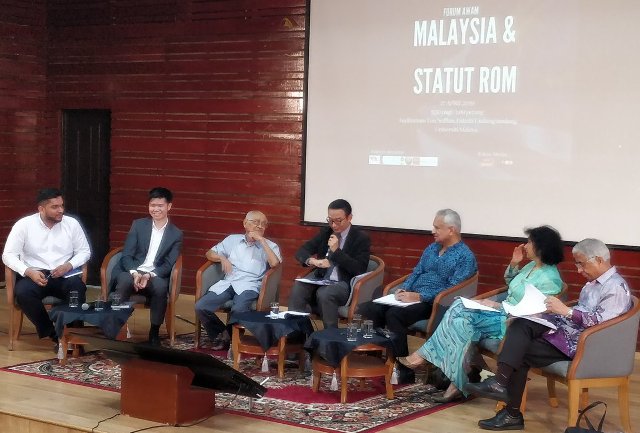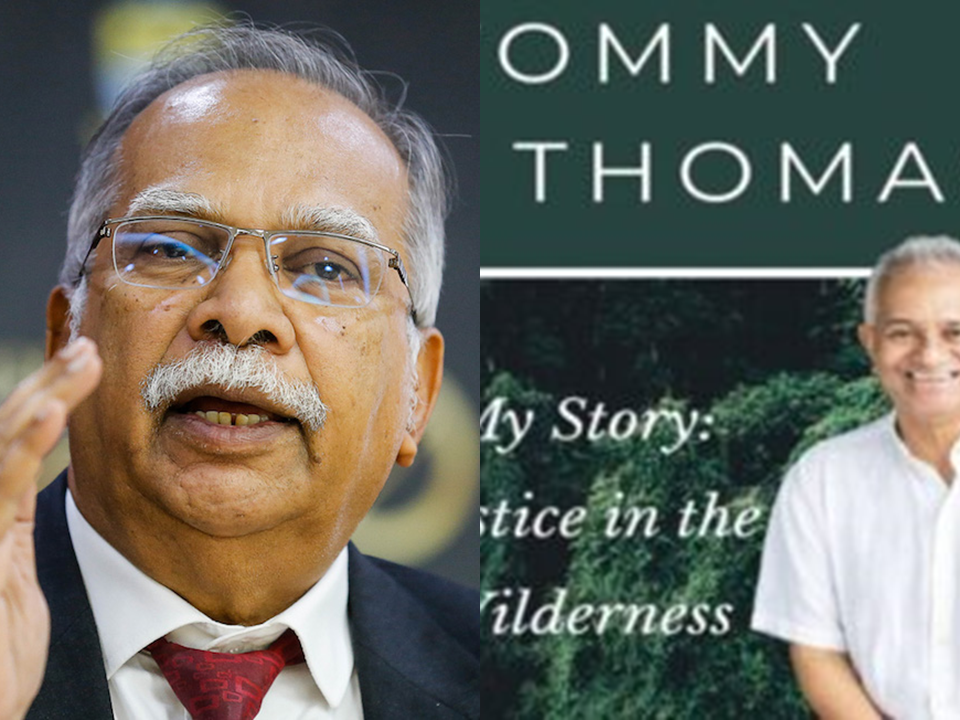 KUALA LUMPUR — Attorney-General (AG) Tommy Thomas today said that the Yang di-Pertuan Agong as the supreme commander of the armed forces will not be held responsible for the decision made by the prime minister, the cabinet and defence ministry regarding war declaration.
KUALA LUMPUR — Attorney-General (AG) Tommy Thomas today said that the Yang di-Pertuan Agong as the supreme commander of the armed forces will not be held responsible for the decision made by the prime minister, the cabinet and defence ministry regarding war declaration.
He said this in reference to the case where former British prime minister was called for Iraq war inquiry instead of Queen Elizabeth as she is the constitutional monarch and the commander of the armed forces.
“So, if war is declared, although Agong is the supreme commander of armed forces, the decision to go to war is always made by the prime minister, the Cabinet and the minister of defence and, operationally, the general who runs the war or the admiral in the navy. If Malaysia commits a war crime, the people who are vulnerable to ICC (International Criminal Court) prosecution will be the prime minister, the Cabinet, the minister of defence, the generals but never the King because he is a constitutional monarch,” he said during his presentation at the ‘Malaysia & Rome Statute’ public forum held in Universiti Malaya today.
On April 5, Prime Minister Tun Dr Mahathir Mohamad announced that Malaysia had withdrawn from ratifying the Rome Statute due to political confusion among the people.
The ICC is the first agreement-based international criminal court aimed at ending immunity to the most serious criminal offenders considered a threat to the international community involving genocide, war crimes and crimes against humanity and invasion.
The forum also featured prominent panellists, namely G25 member Datuk Noor Farida Ariffin, constitutional law expert Emeritus Professor Datuk Dr Shad Saleem Faruqi and lawyer Lim Wei Jiet.
Responding to a public’s query during the Q&A session on why he allegedly failed to convince the Conference of Rulers to support the government on ratifying the treaty, he said that he was not in the same room with the four academics during the explanation of Rome Statute of ICC made to the Conference of Rulers.
Thomas said if they were in the same room at that time, both parties would have a chance to comment on each other’s opinion.
“If the five of us were in the room, the way the dialogue would happen is each of us would have commented on the other, and if I heard the arguments of the other four, I would have the chance to comment on them and they have the chance to comment on mine…but that opportunity did not happen,” he said.
The four academics have been partly blamed for allegedly misleading the Conference of Rulers on the Rome Statute with a biased paper on the treaty.
However, according to the organiser, the four academics did not attend the forum today although they are invited to be among the panellists.
— BERNAMA









